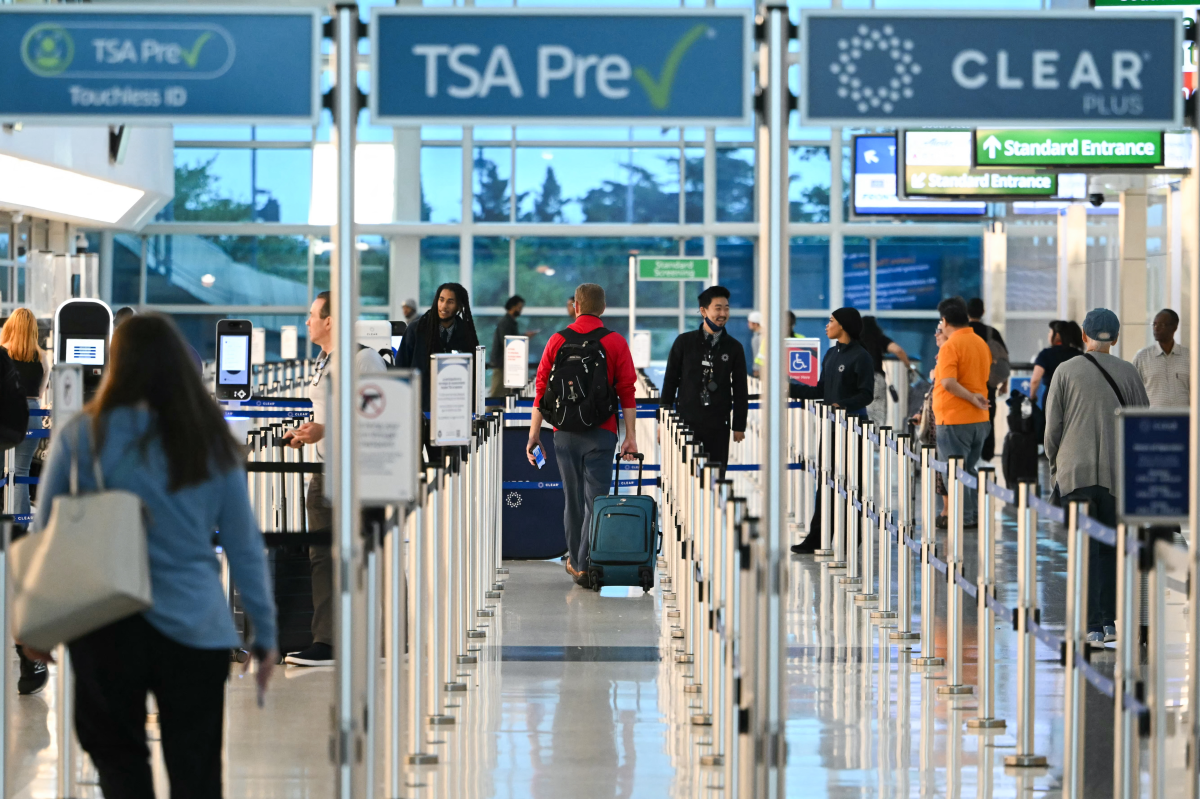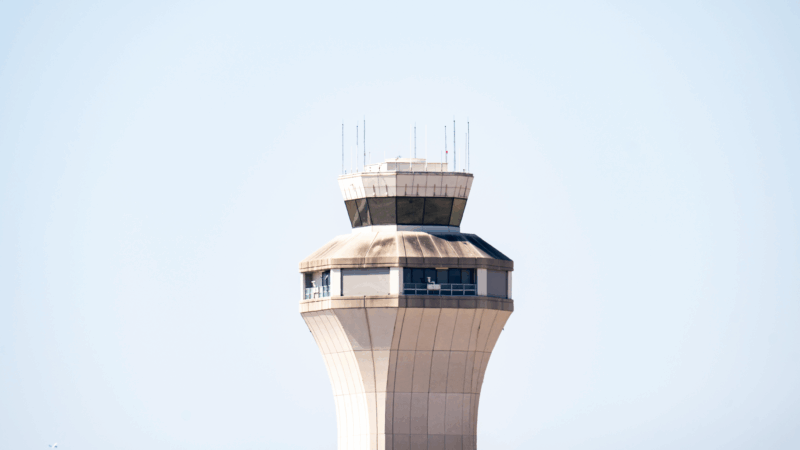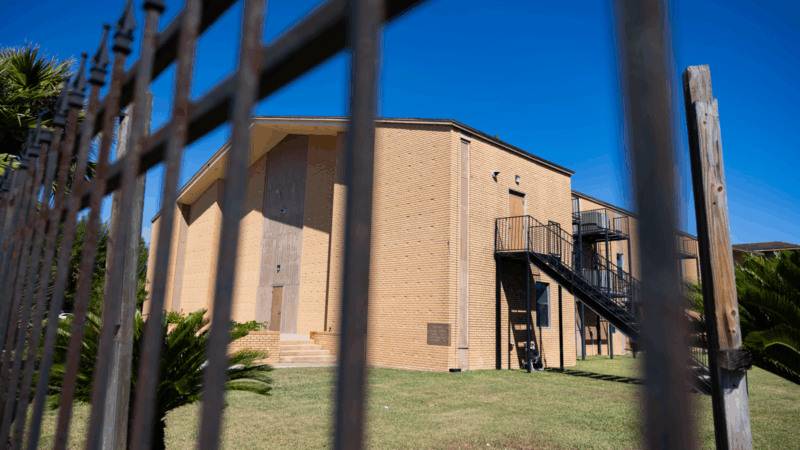Air traffic controllers helped end the last government shutdown, and may again
WASHINGTON — More than a month into the last government shutdown in 2019, a few air traffic controllers finally reached their breaking point.
There was only a “slight increase” in sick leave at two facilities in Virginia and Florida that handle high-altitude traffic, according to the Federal Aviation Administration. But it was enough to throw some major East Coast airports into chaos.
With another shutdown underway, U.S. airlines are once again bracing for the possibility of delays and disruptions to commercial aviation.
“You have the reality of human beings, many of [whom] are living paycheck to paycheck,” said Dennis Tajer, a longtime pilot for American Airlines, and a spokesman for the union that represents its 16,000 pilots. “It doesn’t take long before the system slows down. The safety margin is always protected. But what happens is we meter the amount of aircraft that the system can hold.”
That’s what happened on January 25th, 2019, when a shortage of air traffic controllers forced the FAA to limit traffic at LaGuardia Airport in New York, along with other major airports from Newark, N.J. to Orlando, Fla.
That same day, President Trump agreed to a temporary government funding measure, effectively ending the longest shutdown in U.S. history after 35 days. Exactly how much those disruptions to commercial aviation had to do with the funding deal remains open to interpretation, though some observers think it was an important factor.
Lawmakers in Washington appear far from an agreement to end the current government shutdown that began early Wednesday morning.
Unlike the prior shutdown, the Department of Transportation says it will keep the FAA’s air traffic controller training academy open, part of a push to meet its ambitious hiring goals.
Still, the shutdown will hurt the nearly 14,000 current controllers who have to work through it, even though they won’t get paid until it ends.
“It’s an unnecessary distraction” on top of what is already “one of the most stressful jobs in the entire world,” Nick Daniels, the president of National Air Traffic Controllers Association, said in a video message to members posted on Sunday.
“We have people that will have to decide, do I take a second job? Do I have to do Uber? Do I have to find some source of income during this time?,” he said.
But Daniels urged controllers to be professional — and pleaded with them not to engage in any kind of coordinated job action, because that could prompt the Trump administration to try to decertify the union.

“Our professionalism and our credibility will be being looked at. And not only is your career at stake, but the right to have a union will be at stake during that time,” Daniels said in a recent town hall meeting with members.
The union denies having any role in the slowdown of the nation’s airspace in 2019. But as that incident demonstrated, even a small number of controllers calling in sick can have a big impact.
“It’s a disaster for me,” said one current air traffic controller who handles approaching and departing flights at a major U.S. airport. He asked NPR not to use his name because he’s afraid of retaliation from the FAA.
“I work at the very top level of air traffic control as a profession, and I struggle financially,” the controller said. “And missing a paycheck — I can probably miss one. But it will hurt badly.”
The controller said morale in the workforce is lower than it was six years ago, as the staffing shortage has gotten worse, and pay has stagnated. And he thinks air traffic controllers will once again call in sick.
“It doesn’t even have to be organized,” the controller said. “I think that enough people will individually make the decision that they don’t feel like going to work that this will not last a tremendous amount of time.”
Transcript:
AILSA CHANG, HOST:
Lawmakers in Washington are no closer to a deal to end the government shutdown that began early this morning. The prior shutdown, six years ago, lasted 35 days, and it took a toll on the country’s air traffic controllers, leading to big delays in commercial aviation. NPR transportation correspondent Joel Rose reports that those air traffic controllers could once again play a crucial role.
JOEL ROSE, BYLINE: More than a month into the last government shutdown, a few air traffic controllers finally reached their breaking point. There was only a slight increase in sick leave at two facilities in Virginia and Florida that handle high-altitude traffic, according to the Federal Aviation Administration, but it was enough to throw some major East Coast airports into chaos.
(SOUNDBITE OF MONTAGE)
UNIDENTIFIED NEWS REPORTER #1: A staffing shortage of air traffic controllers today, causing major delays at airports here in the tristate…
UNIDENTIFIED NEWS REPORTER #2: It’s because of the government shutdown. There’s a shortage of air traffic controllers. They’ve been calling out sick because they’re not getting paid.
PHIL LEBEAU: The ground stop was at LaGuardia. That was the one ground stop earlier this morning.
ROSE: That was January 25, 2019. The same day, President Trump agreed to a temporary government funding measure, effectively ending the longest shutdown in U.S. history. Exactly how much that disruption to commercial aviation had to do with the federal funding deal remains open to interpretation, though some observers think it was an important factor. What’s not debatable is that government shutdowns are bad for the U.S. air travel system. Dennis Tajer is a longtime pilot for American Airlines and a spokesman for the union that represents its 16,000 pilots.
DENNIS TAJER: It doesn’t take long before the system slows down. The safety margin is always protected, but what happens is we meter the amount of aircraft that the system can hold.
ROSE: Unlike the last shutdown, the Department of Transportation says it will keep the FAA’s air traffic controller training academy open as part of its push to hire more controllers. Still, the government shutdown will hurt the nearly 14,000 current controllers who have to work through it, even though they won’t get paid until it ends.
(SOUNDBITE OF ARCHIVED RECORDING)
NICK DANIELS: We have people that will have to decide, do I take a second job? Do I have to do Uber? Do I have to find some source of income during this time?
ROSE: That’s Nick Daniels, the president of the air traffic controllers union, in a video message to members posted on Sunday. Daniels said the shutdown is adding more risk to what is already one of the most stressful jobs in the world. But he also urged controllers to be professional and not to engage in any kind of coordinated job action because that could prompt the Trump administration to try to decertify the union. Here’s Daniels in a recent town hall meeting with members.
(SOUNDBITE OF ARCHIVED RECORDING)
DANIELS: Our professionalism and our credibility will be – being looked at. And not only is your career at stake, but the right to have a union will be at stake during that time.
ROSE: The union denies having any role in the slowdown of the nation’s airspace in 2019. But as we saw then, even a small number of controllers calling in sick can have a big impact. NPR spoke to a current air traffic controller who handles approaching and departing traffic at a major U.S. airport. He asked us not to use his name because he’s afraid of retaliation from the FAA. This controller said morale in the workforce is lower than it was six years ago, as the staffing shortage has gotten worse and pay has stagnated. He thinks air traffic controllers will once again call in sick.
UNIDENTIFIED AIR TRAFFIC CONTROLLER: It doesn’t even have to be organized. I think enough people will individually make the decision that they don’t feel like going to work that this will not last a tremendous amount of time.
ROSE: The controller said he could afford to miss one paycheck at most and called the government shutdown, quote, “a disaster for me.” But he expects it will be shorter than the last one.
Joel Rose, NPR News, Washington.
Voting nears to a close in Texas primary that may be crucial to control of the Senate
The GOP and Democratic primaries mark a potential litmus test for what direction base voters want their parties to go ahead of midterm elections this fall that will determine power in Congress.
Pregnant migrant girls are being sent to a Texas shelter flagged as medically risky
Government officials and advocates for the children worry the goal is to concentrate them in Texas, where abortion is banned.
The 2026 World Cup faces big challenges with only 100 days to go
Will Iran compete? Will violence in Mexico flare up? And what about funding for host cities in the U.S.? With only 100 days left before it beings, the 2026 World Cup in North America is facing a lot of uncertainty.
A glimpse of Iran, through the eyes of its artists and journalists
Understanding one of the world's oldest civilizations can't be achieved through a single film or book. But recent works of literature, journalism, music and film by Iranians are a powerful starting point.
Mitski comes undone
She may be indie rock's queen of precisely rendered emotion, but on Mitski's latest album, Nothing's About to Happen to Me, warped perspectives, questionable motives and possible hauntings abound.
This quiet epic is the top-grossing Japanese live action film of all time
The Oscar-nominated Kokuho tells a compelling story about friendship, the weight of history and the torturous road to becoming a star in Japan's Kabuki theater.







